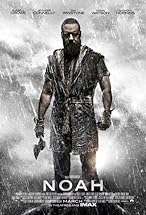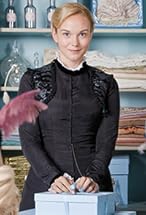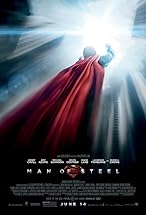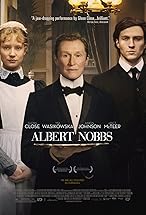Summer may be over, but the memory of great
superhero movies still linger in the mind—even though I’m far from being a kid.
Recently, my son chastised me for not agreeing that the latest Batman movie, The Dark Knight Rises, is the greatest
movie ever made. Batman may be cool, but I’m going to stick with The Amazing Spiderman as a much better superhero
flick. I like Spiderman as a character and find him to be a more agreeable
masked vigilante than the caped crusader of Gotham. He isn’t dark and demonic
and besides, he can fly (not float) through the streets of New York City and
has a really nifty suit—much better than Superman, in my opinion.
I especially liked this characterization of the
Marvel hero, played by Andrew Garfield of The
Social Network fame—a very talented actor who sizzles on screen. I liked
the Tobey Maguire versions, but this rendition was different and much more
memorable. It helped that Garfield’s love interest is Emma Stone, one of my
favorite young actresses. The night of their romantic interlude is very well
done, combining tenderness and passion with impending doom lurking in the
background. Garfield does an amazing job with this scene, relaying a boyish
innocence with masculine assuredness. I believe we will be seeing a lot more of
this actor in the coming years.
Likewise, Stone is fabulous as Gwen Stacey, who
is smart, funny, adorable, and clues in quickly to Spider-man’s true
identity, making her very believable. Remember those old Superman movies where it
took Lois Lane the longest time to figure out that Clark Kent looked exactly like
Superman, sans the black glasses? For a sharp news reporter, she was certainly
lacking in the common sense department. Not so with this Gwen Stacey.
Besides all of the fun action and tender romance,
this story of Peter Parker discovering his true identity and calling in life is
another one of those Christ-like tales that intrigue me. My children roll their
eyes when I relay all the spiritual elements I see in Hollywood films, thinking
I read God and Jesus into everything. Well, the Bible does say that He holds
everything together by His powerful word! (Hebrews 1:3). And so as I watched
this film, I immediately thought of David, the young shepherd boy who was
tucked away into obscurity tending his sheep, and then is suddenly anointed
King of Israel, destined to fight the evil Goliath using God’s supernatural
power. No one can convince me the Bible isn’t the blueprint for all of these
superhero stories, which explains why they garner such interest and intrigue,
generation after generation. God is the originator of everything—even exciting,
superhero action stories.
What is special about this movie is the plot and
how the story fills in some holes regarding Spiderman’s evolution from a young,
teenage boy who is nothing other than a nerd suffering at the hands of tough,
school-yard bullies, to the savior of the world. We witness Peter haphazardly
learning about his father’s discoveries in the area of genetic modification,
along with his connection with Oscorp, a highly sophisticated pharmaceutical
and research laboratory led by Dr. Curtis Conner, one of his father’s old
colleagues. Intrigued, Peter poses as an intern and sneaks into Oscorp, where
he is accidentally bitten by a genetically-modified spider.
The fun begins when Peter heads home and
discovers an amazing, super-human strength and agility that defy logic. The
filmmakers do a very good job of combining jaw-dropping special effects, along
with humor woven into the dramatic moments. We learn about the genesis of the
unusual spandex suit (an amusing scene) and his reasoning for fighting crime. It
didn’t start out for altruistic reasons, as I originally thought. Instead, it
was just plain ole guilt over his Uncle Ben’s murder that propelled Peter to
use his newfound strength to hunt down the criminal. As a result, the city of
New York ends up with a few less bad guys roaming the streets, which doesn’t
please the police department in the least. Captain George Stacy (Denis Leary),
who happens to be Gwen’s father, issues a department-wide manhunt for this
masked man who flies around the city at night rounding up murders and thieves.
** Spoiler Alert **
Peter finally meets up with Dr. Conner at his
home and learns of Oscorp’s mission to use cross-species genetics to re-grow
lost limbs. Missing his own right arm has made Dr. Conner extremely motivated
to complete the research, but pressure from his superior threatens the
fulfillment of these plans. In desperation, the well-meaning Dr. Conner tests
his limb-growing research on himself, and mayhem ensues. He morphs into a
horrible, destructive monster, with Spiderman becoming his number one target. The
story propels into high gear, as Peter is forced to turn away from avenging his
uncle’s death and concentrate solely on saving the people of New York—especially
Gwen, with whom he has fallen in love.
The final showdown with Dr. Conner is spectacular
and exciting, as with any superhero movie. Gwen is rescued from what would
normally be certain death, but her father, Captain Stacey, sacrifices himself
and is mortally wounded. In his dying breath, he has Peter promise to stay away
from Gwen forever—ugh! My heart sunk
when Peter/Spiderman agreed. Why can’t our superheroes be with the women they
love? Why must they be lonely and mysterious, hidden away and unapproachable?
The spiritual side of me would explain something about
sin separating man from God until Jesus, the ultimate savior came, or something
along those lines that would bring another roll of the eyes from my sweet kids.
But then again, maybe elusive heroes simply make a story more interesting and
compelling, because we, the viewer, want the opportunity to get behind the mask
and see who the real man is—to see what makes his heart tick. Again, the
spiritual side of me would say the real man is Jesus and His heart is driven
with love for all mankind. Another roll of the eyes.
Maybe elusive superheroes
make for big, lucrative, blockbuster movie sequels that make everyone happy,
including me. It is no surprise that The
Amazing Spiderman 2 is being scripted at this very moment, with a tentative
release date of 2014.
Now that should bring
a smile.


































